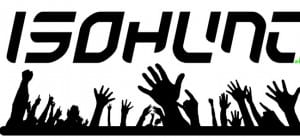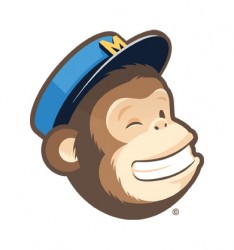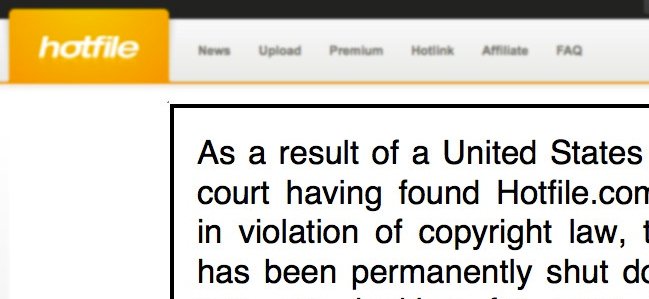10 Years of PT: 2013 – Small Battles, Small Wars
 Note: This post is part of an ongoing series, you can read the other posts here.
Note: This post is part of an ongoing series, you can read the other posts here.
If 2012 was a banner year for copyright and plagiarism online, 2013 was more of a flyer or handbill year.
Where 2012 saw titanic battles such as the SOPA/PIPA protests, Megaupload’s closure and the Jonah Lehrer scandal, 2013 was a year of much smaller, but more frequent battles.
In many ways, 2012 was the year that both dealt with the aftermath of 2012 and set the stage for 2014. Like a middle book in a trilogy, its was certainly a year where a lot happened, but one where nothing felt like it was really started or resolved.
Still, it was an important year for copyright and plagiarism, one that set the stage for the years to come, including many ongoing stories we haven’t seen the conclusion to yet.
Copyright and Plagiarism in 2013
 Where 2012 saw the closure of Megaupload, 2013 saw the closure of hundreds of sites for copyright and trademark infringement.
Where 2012 saw the closure of Megaupload, 2013 saw the closure of hundreds of sites for copyright and trademark infringement.
The biggest of the “gets” was the cyberlocker Hotfile. Widely seen as one of the most popular locker sites, especially after the fall of Megaupload and subsequent voluntary closures, Hotfile going down was not a small deal.
However it was far from the only one. Immigrations and Customs Enforcement (ICE), took down over 700 domains in one fell swoop as part of Operation In our Sites, the National Music Publishers Association (NMPA) targeted dozens of infringing lyrics sites and even though The Pirate Bay didn’t shutter, it was forced to change domains at least 9 times.
However, the biggest site shuttering story of 2013 had nothing to do with copyright, but rather, illegal drugs other criminal activity as Silk Road was brought down.
 The Digital Millennium Copyright Act (DMCA) safe harbor provisions were front and center in 2013. Those provisions prevent hosts from being held liable for copyright infringement by users as long as they remove content expeditiously. Both the video streaming site Veoh and the file sharing site IsoHunt tested the boundaries of the law but, where Veoh won, IsoHunt did not.
The Digital Millennium Copyright Act (DMCA) safe harbor provisions were front and center in 2013. Those provisions prevent hosts from being held liable for copyright infringement by users as long as they remove content expeditiously. Both the video streaming site Veoh and the file sharing site IsoHunt tested the boundaries of the law but, where Veoh won, IsoHunt did not.
But it was questionable DMCA takedown that got the most attention as GoPro filed a bizarre notice against a review of their products and two bloggers, caught in a squabble about natural childbirth, sparked a DMCA showdown that got the EFF and the MPAA involved.
Fair use was a hot topic as well in 2013 as YouTube changed its copyright policies in a way that resulted in thousands of videos being flagged for copyright infringement While that case raised some interesting questions, so did the dispute between The Beastie Boys and Goldieblox and a critical ruling finding that Google Book Search was a fair use.
Finally in copyright news, Robin Thicke and Pharrell Williams filed a preemptive lawsuit over their song Blurred Lines, which just came to a verdict earlier this year.
From a plagiarism standpoint, it was also something of a dull year. Rand Paul found himself at the center of a plagiarism controversy, one that more or less petered out, but it was Dame Jane Goodall who got the biggest headlines as her book was held back for a year after widespread plagiarism was discovered within it by a reviewer.
But the biggest plagiarism story, oddly enough, was actually an old one. May 2013 marked the 10 year anniversary of the Jayson Blair scandal, the story that not only ended the career of a once-promising journalist but also of two editors at The New York Times. In honor of that I reviewed and debunked Blair’s book and looked at the role race played in the scandal.
All in all, it was a very active year, but one where the the skirmishes were much more low key than the previous one.
Most Popular Post
Using the same standard as I have for the other years, looking back over the past 90 days of site traffic, the most popular post on Plagiarism Today from 2013 is: Viper Plagiarism Checker: Posting Your Essays on Essay Mills.
In the article, I examine the terms of service for the (mostly useless) Viper Plagiarism Checker, which basically grants them the right to take any essay the you submit and post it on their private essay mill site. In short, they’re using a service to help detect/prevent plagiarism to feed a service that makes it easier for others to plagiarize.
I wish I could claim that the article had the desired effect of making them stop, but it didn’t. Likely because they were never being truly secretive about it. I fear the added exposure may have actually done more to help them.
Still, I am glad for the article’s continued popularity, meaning more and more people are seeing it every day.
Behind the Scenes
![]() Behind the scenes, 2013 was the year I began my partnership with iThenticate and its parent company iParadigms. Though I’d been close to the company for some time, working more closely with them was extremely natural and, in this year, the partnership began to bear fruit.
Behind the scenes, 2013 was the year I began my partnership with iThenticate and its parent company iParadigms. Though I’d been close to the company for some time, working more closely with them was extremely natural and, in this year, the partnership began to bear fruit.
Not only did I begin actively blogging for them, but a joint effort between iThenticate and myself resulted in an article being published in The Scientist.
I also sponsored Plagiarism Education Week, an event put on by Turnitin, an iParadigms company and publish a white paper on the most common and important types of plagiarism in research.
All in all, it was a very busy year in that partnership, one that resulted in some of my favorite content. It also was a big part of the reason why, in November, I traveled to Columbus, OH to speak at the 73rd annual American Medical Writers Association (AMWA) Conference.
 Outside of consulting, I had two semi-public skirmishes. One was with MailChimp, whose method for preserving email newsletters resulted in duplicate content for those, like Plagiarism Today, using RSS feeds to power their newsletter. Basically, every time MailChimp sent out a newsletter, a web-based version of it was on their server, where it could be indexed by others. That’s not terrible for some, but for those who send out their public site content via MailChimp, it meant that there were two copies of the work floating online.
Outside of consulting, I had two semi-public skirmishes. One was with MailChimp, whose method for preserving email newsletters resulted in duplicate content for those, like Plagiarism Today, using RSS feeds to power their newsletter. Basically, every time MailChimp sent out a newsletter, a web-based version of it was on their server, where it could be indexed by others. That’s not terrible for some, but for those who send out their public site content via MailChimp, it meant that there were two copies of the work floating online.
MailChimp, fortunately, fixed the issue.
 The other was with a company known as ScrapeDefender, which was an anti-web scraping company that, oddly enough, scraped content on my site and failed to comply with my Creative Commons License.
The other was with a company known as ScrapeDefender, which was an anti-web scraping company that, oddly enough, scraped content on my site and failed to comply with my Creative Commons License.
The company backed away from the scraping but now appears to be offline completely, though it’s unclear when exactly that happened.
All in all though, it wasn’t that exciting of a year. No overseas trips, no hurricanes, no major life victories or defeats. It was a good year where a great partnership flourished, but not a particularly exciting one to write about.
Bottom Line
All in all, 2013 was a pretty forgettable year in most ways. So much so that, of all the years I’ve covered so far in this series, I had the least to say about this one going into it. It might seem odd to have more memories of 2006 than 2013, but it’s how the year panned out for me and for the site.
For me personally, I remember it mostly as the year my partnership with iThenticate began to take off and a series of smaller battles, both in larger copyright news and personally. It was a good year to be sure, but a year without any major battles or drama is one easily forgotten, no matter how great.
However, 2014 would quickly fix that and, as this series winds down, we look ahead to one of the busiest years in my history and the site’s history, showing clearly why this site is a never-ending stream of excitement and new things to talk about.
Want to Reuse or Republish this Content?
If you want to feature this article in your site, classroom or elsewhere, just let us know! We usually grant permission within 24 hours.
